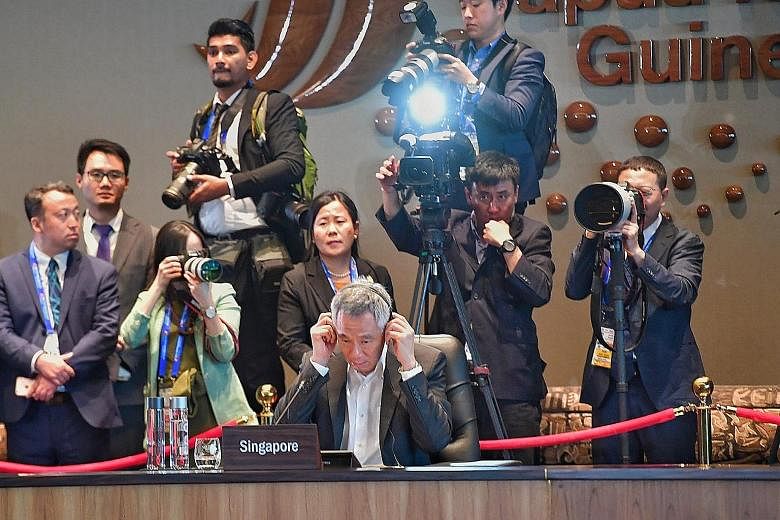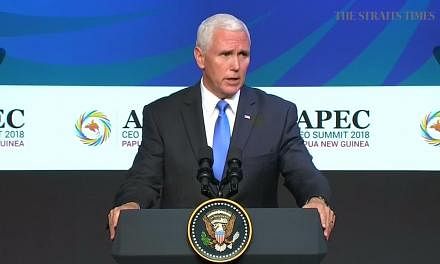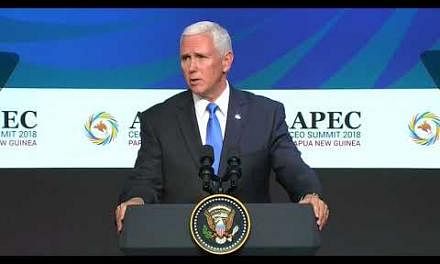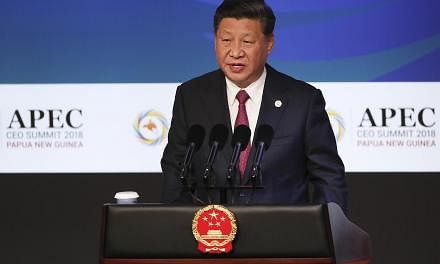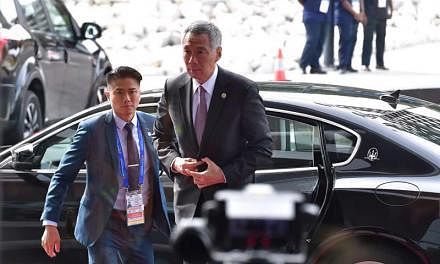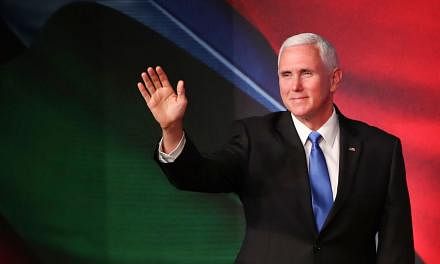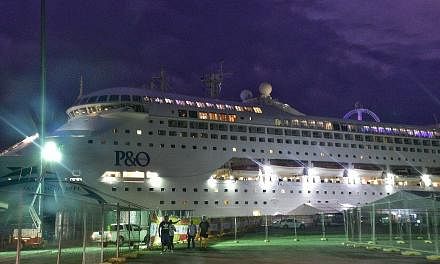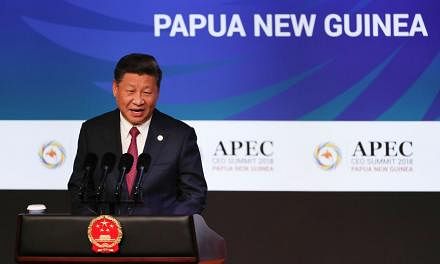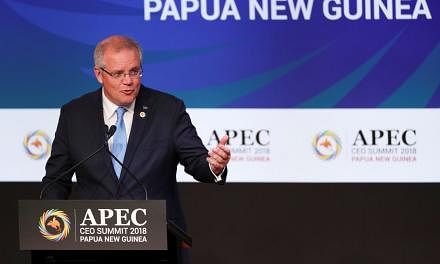Leadership from a regional forum of Asia-Pacific economies is needed more than ever, given mounting pressures against multilateralism and free trade, said Prime Minister Lee Hsien Loong.
"We can set the global direction and encourage others to follow our example of working together, rather than of going it alone," he added yesterday.
Mr Lee spoke at a leaders' retreat in the capital of Papua New Guinea, which is hosting the Asia-Pacific Economic Cooperation (Apec) summit. Trade tensions between China and the United States have overshadowed the annual meeting.
The divide between Chinese President Xi Jinping and US Vice-President Mike Pence was clear, when the leaders locked horns in back-to-back speeches on Saturday.
In an interview with Singapore media yesterday to wrap up his visit, Mr Lee said the speeches that Mr Xi and Mr Pence delivered were consistent with what they said in private meetings with Apec leaders.
And while Apec is not a forum for the negotiation of such trade matters, everyone expressed their views during the meeting, he said.
"We hope that the trade that has caused the whole region to prosper will not be disrupted. We hope that these tensions will be resolved amicably. And we also understand that we want to keep the multilateral trading system but we have to update the rules," he added.
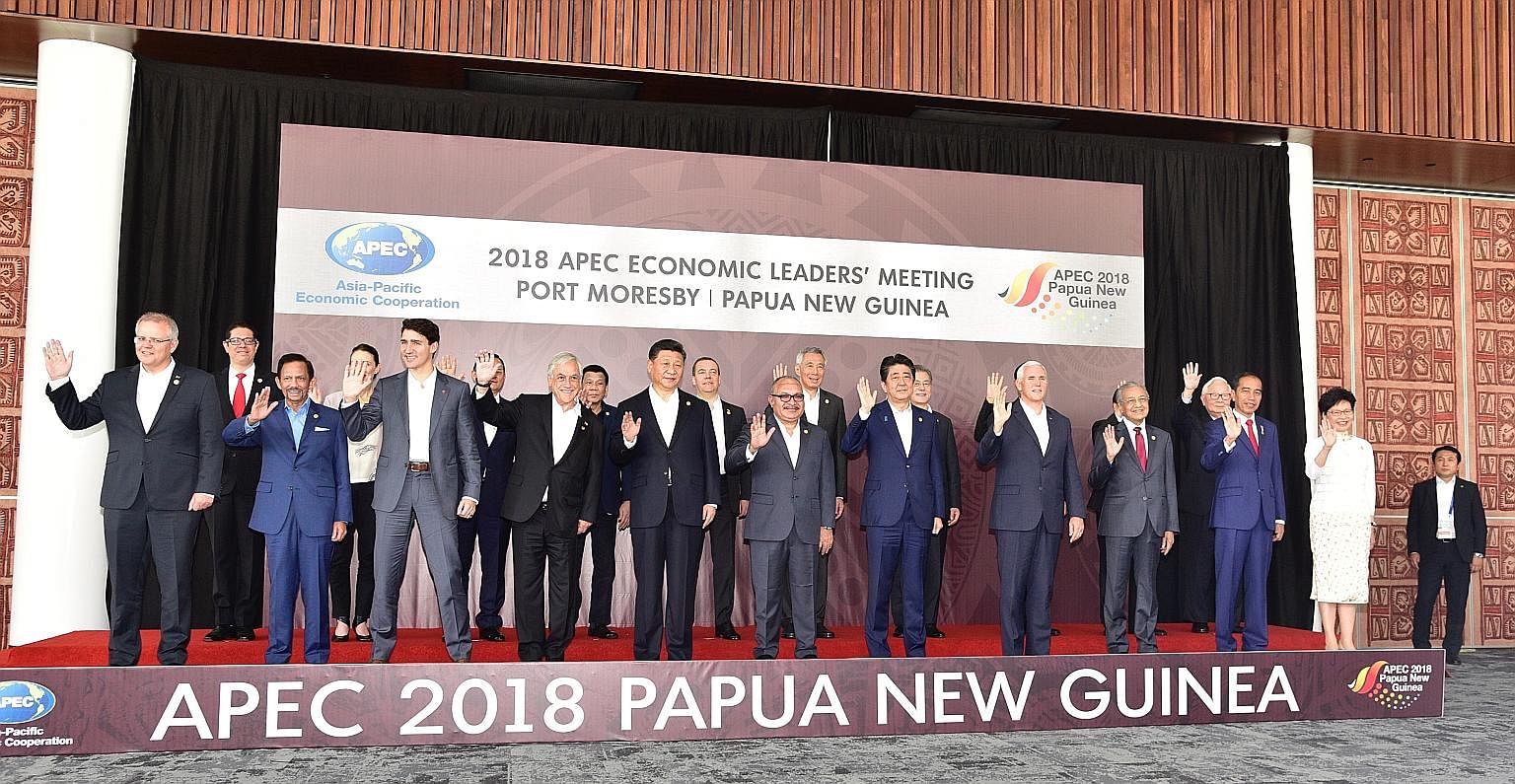
Apec leaders yesterday failed to issue a leaders' statement for the first time in the grouping's history, reflecting the impasse on trade.
Asked how the divided positions impact Apec's influence, Mr Lee said it is "not a plus".
But he noted that Apec is a forum where leaders can meet informally and discuss various areas of cooperation. Hopefully, the progress made in other areas will help to improve the trust and atmospherics between the parties and make it easier for the hard issues to be dealt with, he said.
That is easier to do if everybody shares major premises, such as the importance of a multilateral system and the need for openness and cooperation, Mr Lee added.
But the notions of fairness and reciprocity have become vital parts of America's rhetoric and what they are trying to achieve in terms of trade, he said. "Those are issues we'll have to discuss, and I think will take some time to resolve."
In his speech yesterday morning, Mr Lee noted that Apec started in 1989 as an informal gathering of 12 like-minded economies that shared a vision of an integrated, vibrant and prosperous Asia-Pacific. The grouping now has 21 members.
The hope was that members could cooperate on a non-binding and voluntary basis to liberalise trade, he said, adding that Apec has succeeded in this core mission.
Citing how tariffs in Apec today are a third of what they were at its founding, he said the grouping has made steady progress towards the goals of free trade and investment set in Bogor, Indonesia, in 1994.
He called on fellow leaders to press on with efforts to form a Free Trade Area of the Asia-Pacific (FTAAP) - a long-term goal to link Pacific Rim economies and harmonise various regional and bilateral free trade agreements.
Mr Lee said the Comprehensive and Progressive Agreement for Trans-Pacific Partnership, which will come into force next month, is an "encouraging development". The revised free trade pact between 11 nations, minus the US, is seen as one of the pathways to the FTAAP.
Another pathway is the Regional Comprehensive Economic Partnership, which 16 nations last week agreed to conclude talks on next year.
Mr Lee also welcomed other complementary regional integration initiatives that can bring the world closer together.
In his wrap-up interview, he noted that countries in the region want to cooperate on a wide range of areas such as education, adjusting to the digital economy and inclusive development, notwithstanding ongoing trade issues.
"These are areas where countries want to work together, and will continue to work together even with the thunder and lightning in the background from the trade frictions," he said.
